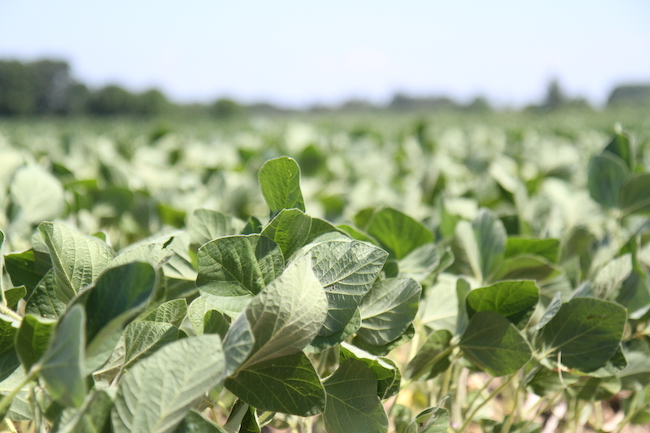
Features
Editorial: Too much of a good thing
February 12, 2024 By Alex Barnard
 Soybean field in Norfolk County, Ont. Photo by Alex Barnard.
Soybean field in Norfolk County, Ont. Photo by Alex Barnard. While at the Ontario Agricultural Conference in Ridgetown, Ont., this January, I heard one panelist mention the maxim of “you can’t manage what you don’t measure.” It’s not the first time I’ve heard it – I imagine it’s become even more common in the age of precision and digital agriculture. With the wealth of data at our fingertips, one might expect all the answers to agriculture’s pressing questions would be clear. But, of course, it’s never that simple.
There is such a thing as too much of a good thing. Too much data can be paralysing. Where do you even start?
Many of the digital agriculture platforms on offer today will do some of the work for you, or possibly connect you with someone to assist you. This can be a great help for farmers who are looking to get more into digital agriculture but don’t have the time or inclination to learn data analysis themselves.
Call me a cynic, but my fear would be: what happens if this platform is no longer available, or updated and no longer works on my equipment? It happened recently with my phone – the operating system was too old to work with the new updates and I could no longer access my email on it. Or what if you change equipment or platforms – are you able to take your data with you? Will it be compatible with different software if the previous program was proprietary?
I don’t mean to deter anyone from using those platforms, but it’s a factor I would consider if it were me.
In situations like this, where there is so much information and so many variables at play, it helps to have a question or a goal to start. Something fairly simple that can be tracked across the season or multiple seasons to see the effects of your efforts. As you gain more confidence and experience in working with the data, you can dig a little deeper and focus on the nitty-gritty details that are specific to your operation or fields.
One of the other panelists said he hires employees specifically to handle the data analysis, because that’s their speciality. They’ve been trained to pick out the relevant or important insights from the swathes of data they’re provided – the needles in a haystack. It’s important to remember that you don’t have to be the one to do everything. Your time is valuable – and finite – so delegating tasks to the people best suited for them, or hiring someone to handle a specialized task, can save a lot of headaches.
But, if digging into the stats and numbers and maps is something you enjoy, it’s certainly worth putting in the time and effort to learn how to make the data work for you. Be careful – if you do, you might find yourself in high demand by other farmers. There’s clearly a market for that know-how.